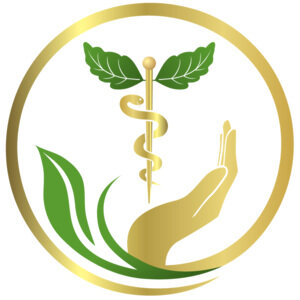Cancer Fighting Diet: Part 2
/A cancer-fighting diet consists of mostly fruits and vegetables.
If you followed us during Part I of our series on What is a Cancer Fighting Diet, you know that HOW much you eat matters (see Part I post). We can now discuss the impact of WHAT you eat.
So what should you be eating on a Cancer Fighting Diet?
Simply put: a plate that consists of Mostly Fruits and Vegetables.
Plants contain vitamins, minerals, antioxidants, and therapeutic colors that can boost your immune system, prevent blood flow to a tumor, reduce inflammation[1], and tell cells that have made mistakes to kill themselves[2].
Each color of the RAINBOW represents a different phytochemical that is a CANCER FIGHTER. If your plate is 50%-75% full of colorful vegetables, then you’re giving your body the fuel it needs to help prevent and fight disease.
Specific fruits and vegetables have shown potential to help fight certain types of cancers. For example, cruciferous vegetableshave been associated with decreased cell proliferation in DCIS breast cancer[3] and inducing apoptosis in ovarian cancer[4]. In prostate cancer patients, lycopene from tomatoes has been shown to lower Prostate Specific Antigen (PSA)[5].
It’s important to include produce that has been shown in studies to have cancer fighting properties. It’s crucial that you meet with a nutritionist who specializes in oncology to guide you on the most comprehensive cancer-fighting diet that includes the most beneficial produce to arm you to fight for your individual wellness.
Please call us at (248) 798-2942, and allow one of our board certified nutritionists and natural medicine doctors work with you to use nutrition to fight cancer and live the life you desire.
-------------------------------
[1] Middleton Jr, Elliott. "Effect of plant flavonoids on immune and inflammatory cell function." Flavonoids in the Living System. Springer US, 1998. 175-182.
[1] Seeram, Navindra P., et al. "Blackberry, black raspberry, blueberry, cranberry, red raspberry, and strawberry extracts inhibit growth and stimulate apoptosis of human cancer cells in vitro." Journal of agricultural and food chemistry 54.25 (2006): 9329-9339.
[1] Zhang, Zhenzhen, et al. "Associations between cruciferous vegetable intake and selected biomarkers among women scheduled for breast biopsies." Public health nutrition 19.07 (2016): 1288-1295.
[1] Chen, Huaping, et al. "Epigallocatechin gallate and sulforaphane combination treatment induce apoptosis in paclitaxel-resistant ovarian cancer cells through hTERT and Bcl-2 down-regulation." Experimental cell research 319.5 (2013): 697-706.
[1] Zhang, Xin, Yong Yang, and Qi Wang. "Lycopene can reduce prostate-specific antigen velocity in a phase II clinical study in Chinese population." Chinese medical journal 127.11 (2013): 2143-2146.





